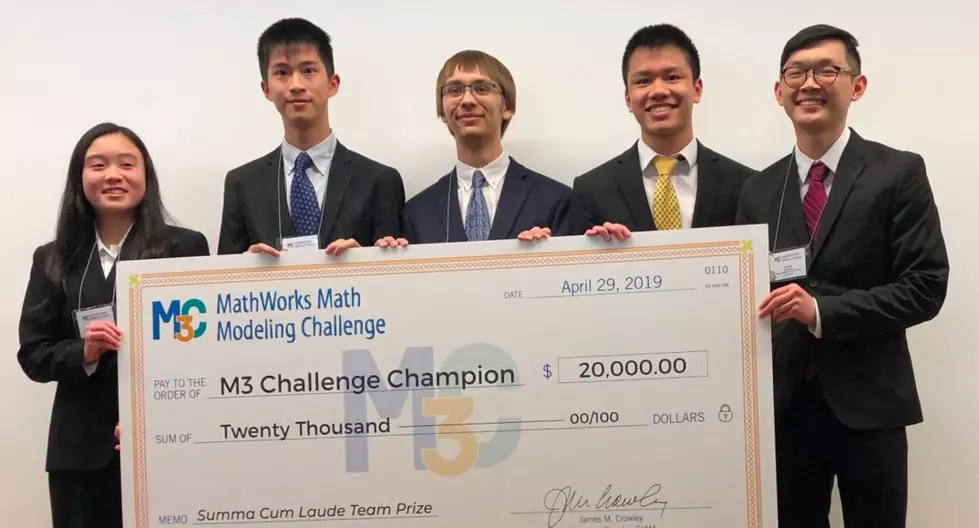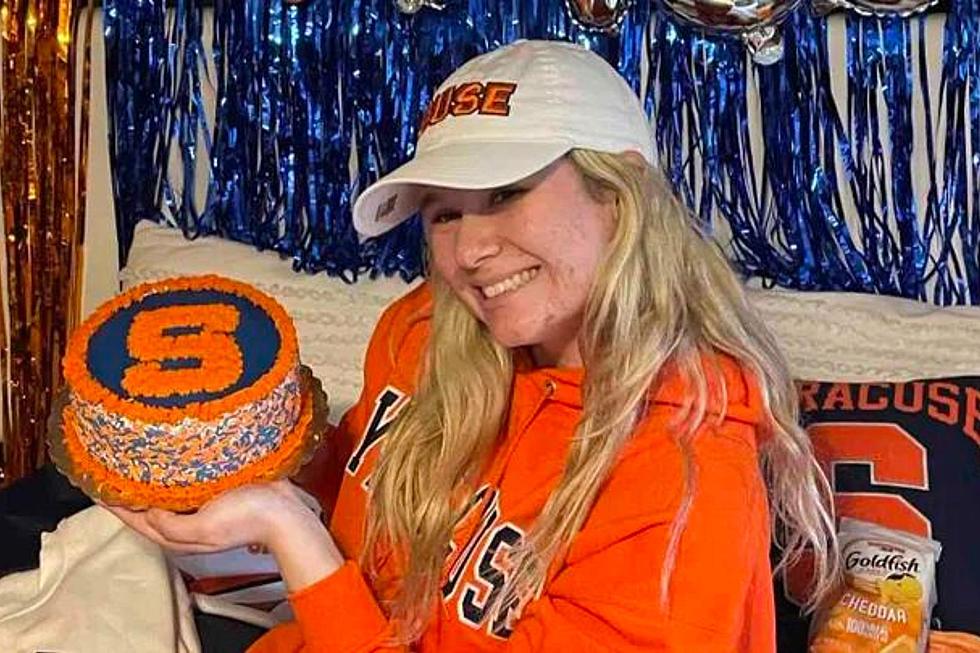
NJ students win national contest applying math to drug solutions
MIDDLETOWN — A team of five students from High Technology High School has taken home the grand prize of $20,000 in college scholarships in a nationwide competition to recommend solutions for substance abuse problems by using mathematical modeling.
Eric Chai, Gustav Hansen, Emily Jiang, Kyle Lui and Jason Yan were coached by faculty member Raymond Eng in the MathWorks Math Modeling Challenge, presented in partnership with the Philadelphia-based Society for Industrial and Applied Mathematics.
On a weekend in early March, about 1,200 student teams registered to study the topics of addiction and drug abuse. They were tasked with devising math models to arrive at conclusions, and present a paper detailing their findings.
Even that preliminary step was daunting. Of the registered teams, only about 900 submitted papers. The papers then went through a rigorous review process involving more than 100 mathematicians and 17 judges. The top six teams were invited to New York City to give oral presentations on April 29, at which time High Technology was crowned the champion.
The judges gave the New Jersey students high marks for their organization, teamwork and integration of each component of their response, as well as the solution itself. Eng said just as with any math assignment, it was important to "show your work," and demonstrate that it was a group effort, as just one or two students could not have completed the project alone.
"You could have a brilliant solution, but if you can't articulate it, if you can't write it down, if you can't explain it, you're not going to get the points," he said. "You're just not going to win."
Speaking for the students, Chai said often in class, they aren't afforded the opportunity to use applied mathematics, so this gave them the chance to see things from a different perspective and comprehend how their math skills relate to the real world.
As for the main questions they asked, and tried to answer, Chai said his group looked at the recent rise of e-cigarettes, how that growth might continue over the next 10 years, and how it would affect traditional cigarette use.
The students also needed to show justification for ranking four different drugs from most to least harmful. That yielded some interesting findings.
"Our results showed that on an individual level, so for the user, unprescribed opioids were by far the most harmful," Chai said. "And then for society as a whole, alcohol was the most harmful."
The work may not be done for the High Technology students. In the past, Eng said that the competition's sponsors have presented the winning paper at an annual symposium for applied mathematicians, and relayed relevant information to government officials. And in some cases, students have been asked to present their results themselves at these events.
More from 94.3ThePoint:
More From 94.3 The Point










